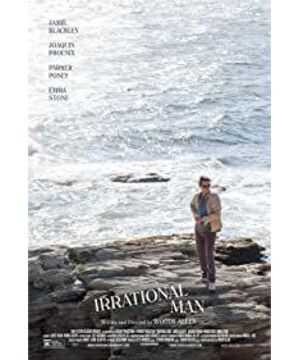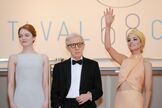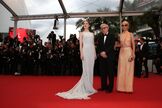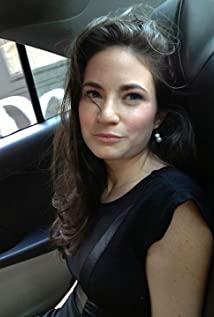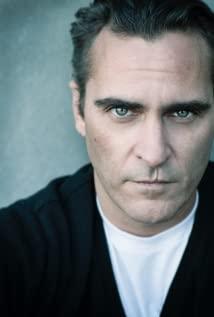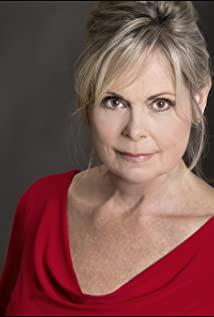Lao Tzu first proposed "Tao" as the highest category of philosophy.
The word "Dao" originally refers to the way people walk, which means extending in all directions. This meaning is extended to "methods and ways", which has initially assumed the meaning of regularity and universality. The word "Tian Dao" already refers to the law of the movement of celestial phenomena in the Spring and Autumn Period, and sometimes includes the meaning of good and bad luck in life.
Lao Tzu took the general meaning of Dao and the Dao of Heaven and summarized it as the most universal principle for the existence and change of things. "Tao" has both the meaning of material substance and its laws. Regarding "Tao", Lao Tzu has a concise summary. He said: "There is a mixture of things, born from the heaven and the earth. It is lonely and lonely, independent and not changed, and it can travel around without danger. It can be the mother of the world. I don't know its name. Dao ."
Lao Tzu's "Tao" has the following five characteristics:
First, "Tao" is a primitive substance that is not divided into chaos, it is "mixed", and there are "images" and "essence". From the primordial matter in this chaotic state, it is judged as all things, "Tao gives birth to one, one gives birth to two, two gives birth to three, and three gives birth to all things."
Second, "Tao" is the most primitive and eternally moving material entity.
Third, "Tao" is different from any specific thing in nature, so Laozi called it "nameless". But "Tao" is the root of all things in the universe. It is a form without form, an image without form. Its image is not fixed, so it is called "trance".
Fourth, the "Tao" cannot be directly felt by the naked eye or the body. Regarding the "Dao", "the one who sees it and does not see the name is called Yi, the one who hears it and does not see the name is called Xi, and the one who fights it cannot be called the micro. These three cannot lead to cross-examination, so they are mixed into one." Lao Tzu said that "being is born out of nothing" does not produce all things out of nothing, but that "Tao" produces all things.
Fifth, "Tao" is matter, and it is also the law of the movement of matter, such as "the way of heaven", "the way of man", "what is called the "no way", and so on. "Tao" is the core of Laozi's philosophy, and it is the inheritance and development of ancient Chinese philosophical materialism since Fuxi. In Fuxi's philosophy, "chaos" is only divided into "yin and yang". Fuxi did not specify the interrelationship between "all things", "chaos" and "yin and yang".
Lao Tzu connects all of this through "Tao". In Laozi's philosophy, "all things bear yin and embrace yang", and "Tao" is the most primitive and eternally moving material entity, and it is also the law of material movement. The purpose of Lao Tzu's proposing "Tao" is to demonstrate the historicity of "Virtue", pointing out that the "Virtue" in this world is a historical betrayal of "Tao" and an ideological weapon for the ruling class to oppress the people. He said: "When Dao is lost, virtue is followed. When virtue is lost, benevolence is followed. When benevolence is lost, righteousness is followed. When righteousness is lost, propriety is followed."
Laozi believes that "supreme virtue" is "dao" itself, and the basic characteristics of "dao" are "naturalness" and "inaction". ". "Nature" is the way of life of Chinese farmers since ancient times of "harmony between man and nature"; "Tao" is the representative and symbol of farmers' interests; "Wuwei" is a state of simplicity without oppression, exploitation, and human intervention. Lao Tzu proposed that the highest good is like water, and water is good for all things without fighting”, “governing people and affairs is not like stingy”—the best social system should be like planting crops, reducing human intervention, reducing unreasonable oppression and taxation, and should increase love and personal Cultivation. When we see these words, do we feel very rational? Yes, we have to read it and use it through reason! But from the perspective of Christianity, let's look at it again.
1. All wisdom comes from The LORD is with him forever and before there is time.
2. Who can count sea sand, raindrops and eternal days? Who can measure the height of the sky, the width of the earth, and the depth of the abyss?
3. The wisdom of God is born before all things, who can explore it?
4. Wisdom is created before all things; wise wisdom is from eternity.
5. The source of wisdom is the word of God above, and her ways are the eternal commandments.
6. To whom has the source of wisdom been revealed? Who knows her plan?
7. To whom has the discipline of wisdom been revealed and discovered? Who understands her many ways?
8. There is only one wise, supreme and almighty Creator, who is most feared, the Lord who sits on his own throne.
9. He created wisdom through the Holy Spirit, looked at her, and counted her,
10. He poured out her on all his works, and on all flesh and blood according to his gift; and Give her to those who love him.
Those who fear God will gain wisdom
11. The fear of God is the crown of glory, glory, joy and joy.
12. Fear the Lord, rejoice in the spirit, give joy, joy and long life.
13. He who fears the Lord will be blessed in the end; he will be blessed on the day of his death.
14. Loving the Lord is wisdom to be honored.
15. To whom she shows, she gives love. This love enables one to enjoy the Lord.
16. The fear of the Lord is the beginning of wisdom. This fear is formed in the womb with the faithful. She associates with the chosen seed and is recognized by the loving and faithful. Wisdom has established a permanent foundation among men; in their descendants she will be trusted.
17. The fear of the Lord is the piety of knowledge.
18. This godliness preserves the heart, leads to righteousness, and imparts interest and joy.
19. He who fears the Lord will be blessed; in his last days he will be blessed.
20. The fear of the Lord is the consummation of wisdom; she intoxicates those who fear the Lord with her fruit.
21. Fill their storehouses with their produce; fill their treasuries with their treasures.
22. The fear of the Lord is the crown of wisdom; she produces peace and restores health.
23. God sees and measures wisdom, both of which are the grace of God.
24. Wisdom is to give the light of knowledge and understanding, and to increase the glory of those who hold on to it.
25. The fear of the Lord is the source of wisdom, and her branches endure long.
26. Fear the Lord, and refrain from sin; whoever cherishes it will be free from the wrath of the Lord.
27. Fear
the Lord and cast out sin.
28. The wrath of unrighteousness is never righteous; the fire of his wrath shall destroy him.
29. Those who endure for a while will be rewarded with joy in the end.
30. He was silent for a while, but in the future the tongues of many people will praise his wisdom.
31. In the treasury of wisdom there are wise proverbs.
32. But the fear of the Lord is detestable to sinners.
33. If you desire wisdom, keep the commandments; the Lord will give you wisdom.
34. For the fear of the Lord is wisdom and discipline; what pleases him is faithfulness and goodness.
35. The Lord will fill the treasuries of these people.
36. Do not go against the fear of the Lord; approach him without any second thoughts.
37. Talk to people without hypocrisy; be careful with your lips.
38. Do not be arrogant, fearing that if you fall, shame will come upon you;
39. And the Lord will reveal your secrets and shame you in assembly;
40. For you did not approach the Lord with fear, but your heart was full of deceit. These things have a complete feature, do you know what it is? Let's look at Kangde's again.
In the Critique of Pure Reason, Kant studied the forms of human perception, namely space and time. Matter existing in time and space is processed into experience by human understanding, and Kant calls the forms of human understanding "(absolute) categories", and these forms of human reason include people's assumptions about the soul, the world, and God , Kant understands them as some kind of restrictive principles through which people's empirical world is constructed.
The "Critique of Pure Reason" studies the question of how human beings know the external world, while Kant's "Critique of Practical Reason" published in 1788 is to answer the question of ethics: what should we do? To put it simply, Kant tells us: We have to do our duty. But what is "duty"? In order to answer this question, Kant proposed the famous "(absolute) categorical imperatives": "Do this so that the maxim of your will can at the same time become the principle of universal lawmaking." Kant believed that human beings are Morality is autonomous. Although human behavior is limited by objective cause and effect, the reason why people become human lies in their moral freedom, ability to transcend cause and effect, and the ability to be responsible for their own behavior.
The question that Critique of Judgment seeks to answer is: What hope can we have? The answer given by Kant is: If we can really be moral, we must assume the existence of God, and assume that the end of life is not the end of everything. In the Critique of Judgment, Kant is most concerned with the purpose, meaning and mode of action of human spiritual activities, including human aesthetic appreciation and fantasy.
However, due to the rejection of the metaphysical view of nature at that time, this theory did not attract people's attention and was buried for a long time. It was not until 1796, when PS Laplace, a famous French mathematician and astronomer, independently proposed another nebula hypothesis of the origin of the solar system in his book "Theory of the Cosmos", people remembered Kant 41 years ago This theory has been put forward, so later generations call this theory Kant-Laplace theory. This doctrine reigned supreme in astronomy throughout the nineteenth century. We probably already know how common they are. First of all, at the beginning of the movie, it talks about whether Kant's so-called "morality" exists, or "does it help people?" Murder, crime! The emergence of free will made his heart doubt! So, Woody Allen discussed this issue in "Sin and Wrong", according to the professor's words, "Just do our : Omen and have never heard) and life are helpful, sometimes small things can inspire you. Last time I wrote a review, that is, the "reason" of "God" must be based on "care", otherwise Will... deny the existence of God. Let's take a look at what Nietzsche said: "Philosophy of Action", a philosophy that claims to maximize the demands and desires of individuals. His philosophy has the momentum of contempt and criticism of everything This is the important reason why his philosophy is appreciated by postmodernism.
Postmodernism either rejects traditional philosophy and modern philosophy, or dissolves it. However, he has a soft spot for Nietzsche's philosophy. It has absorbed everything they need. Including the basic ideas of Nietzsche's philosophy, and even Nietzsche's philosophical style. The disintegration tendency in Nietzsche's philosophy has become the spiritual pillar of postmodernism. Nietzsche never thought that he became the theoretical pioneer of postmodernism. .
For him, a philosophical thinker is life, and life is philosophical thinking. He created a peculiar philosophy that was completely different from the past, showing his own philosophical thoughts. His philosophy requires no reasoning, no system framework, and is not a theoretical system at all , is his direct perception of the pain and joy of life. Nietzsche, in his first academic book - "The Birth of Tragedy", has begun to criticize modern civilization. He pointed out that in capitalist society, despite the Material wealth is increasing day by day, people have not obtained true freedom and happiness. The rigid mechanical model suppresses people's individuality, it is people's loss of the passion of free thinking and the impulse to create culture, modern culture appears so decadent, this is the disease of modern civilization, Its root is the atrophy of life instinct. Nietzsche pointed out that to cure modern diseases, one must restore human life instinct, give it a new soul, and make a new interpretation of the meaning of life. He received inspiration from Schopenhauer, and also He believes that the essence of the world is the will to life.
Nietzsche violently exposes and criticizes traditional Christian morality and modern reason. In epistemology, Nietzsche is an extreme anti-rationalist, and he has carried out the most thorough criticism of any rational philosophy. He believes that , The spiritual life of Europeans for two thousand years is centered on belief in God. People are God's creation and appendage. The value of life and everything of people are pinned on God. Although the foundation of God's existence has begun since the Enlightenment Disintegrated, but because there is no new belief, people still believe in God and worship God. Nietzsche's famous saying "a broken drink - God is dead" - is a ruthless and fearless criticism of God. He used the mouth of a madman to say that he is The murderer who kills God points out that God should be killed. Christian ethics constrains people's minds and suppresses people's instincts. If people gain freedom, they must kill God. Nietzsche believes that the decline of Christianity has its historical inevitability. The religion of the oppressed, transformed into the religion of the rulers and oppressors, its decline is inevitable in history. It
killed God as God and ushered in the God of capital, the God of capital incarnation. Nietzsche ignored a basic fact : Being enslaved by capital is no more free than being enslaved by God. But his cry of "God is dead" and the enlightenment value of drinking can't be underestimated.
Nietzsche believes that in a world without God, people have unprecedented opportunities and must establish new values, values centered on human will. For this reason, traditional moral values must be liquidated, and traditional moral values are God's In the last bunker, he deeply penetrated into people's daily life and corroded people's hearts.
Nietzsche claimed to be a non-moralist and anti-Christian. He fiercely criticized the morality of Christianity and the virtues that Christianity advocated. He is critical. He first takes rational philosophers. He points out that the first characteristic of philosophers is that they lack a sense of history. For thousands of years, everything that has been dealt with by philosophers has become a conceptual mummy. The function is nothing more than to rigidify the flowing history and frame the living reality with some eternal concepts. The result is to kill the process of life and death of things, and kill life. He believes that this world is full of contingency and turbulence. The real world, he said, is nonexistent, everything is fluid, grasping, dodging. The philosopher's second characteristic is the "rejection of sensory evidence" that turns the real world upside down and the world of illusions. Perceptual evidences are real and credible, only lies are stuffed into them when they are processed. The third characteristic of philosophers is to confuse the beginning and the end, they deny the process of growth, the process of evolution. The fourth One characteristic is the use of "reason" in language to force people to make mistakes. "Yes" is confused with "existence", making falsehoods and falsehoods to deceive ignorant people. He believes that from Socrates to modern people, the fanatical appeal of Reasons are very absurd. The reason why human beings advocate reason is to expect it to bring freedom and happiness to people; however, the result is just the opposite, rational treatment is the enemy of human instinct, causing people to suffer more.
Critical reason brings The fallacy is correct, but it cannot deny the existence of reason, the historical status and role of reason. Reason is the symbol of human progress and the fruit of the process of human civilization. Some outstanding philosophers in history use the weapon of reason to observe the world and understand the world. There is nothing wrong with reason itself, and reason cannot be denied. Without reason, human beings cannot correctly understand the world and the truth. Without reason, human beings will fall into a confused and terrible situation.
Nietzsche wants to establish a new philosophy, a philosophy that puts the will to life above reason, an irrational philosophy. As a challenge to reason, he puts forward the theory of the will to power. The will to power replaces the status of God, the status of traditional metaphysics. The core of the theory of the will to power is to affirm life and life. The will to power is not a secular power, it is an instinctive, spontaneous and irrational force. It determines the essence of life and the meaning of life. Nietzsche compares force The different characteristics of will and reason, the characteristics of reason are: calm, precise, logical, rigid, abstinence; the characteristics of will to power are: passion, desire, wild, active, fighting. Nietzsche believes that the will to power originates from life and belongs to life , it is the real life. Although life is short, as long as you have the will to power, create the will, and become a spiritually strong person, you can realize your own value. The will to power, as the highest value measure, on the one hand affirms the value of life, and On the one hand, it also defends the inequality in the world. In Nietzsche's view, human beings, like natural life, have strong and weak points. The strong are always the minority, and the weak are the majority. History and culture are created by the strong few. , they rule the weak as a matter of course. Nietzsche overthrew the hierarchy of God and affirmed the hierarchy of man.
Nietzsche also proposed his philosophy of superman, about the philosophy of constructing an ideal life. Superman is the symbol of the ideal of life and the ideal goal pursued by Nietzsche and the realm of life. Nietzsche was very disappointed with modern people and modern life. He dreamed of improving people and creating new people, that is, superman. Superman is not a specific person, but an illusory image. Superman has the earth, the ocean, and lightning. Momentum and style. Nietzsche believes that Superman does not yet exist in reality, it is the ideal image of future people; Superman puts forward value goals for real life; Superman is the self-transcendence of human beings.
Nietzsche advocates that the purpose of life is to realize the will to power, expand Self, become a superman who controls everything. Superman is the highest value of human beings, and should despise all traditional moral values, do whatever he wants, and realize himself by enslaving the weak and gangsters. At the same time, he is particularly opposed to equality between men and women, freedom of marriage, and liberation of women. In his opinion Come on, the way people treat women is "don't forget your whip".
Nietzsche's voluntarism philosophical value has two aspects. On the one hand, Nietzsche inherits the essence of the Enlightenment and reflects the awakening of modern consciousness. The positive affirmation of the value of life leads people to think about the meaning of life and the value of life, and to reposition life; The negative criticism of instrumental rationality and industrial civilization has opened up the modern irrationalism trend. On the other hand, the criticism of rationality and the negation of tradition are also one-sided, which is the aspect of postmodernism appreciation. His ethics Thought reflects the interests of the emerging monopoly bourgeoisie. Look, look, Nietzsche fully supports free will! (Self Thinking) But, in fact, this also affects Woody Allen, starting from "Sin and Wrong". Of course, this kind of thought lingered in his heart for too long, and the matter of Song Yi came out later. Of course, I don't talk too much about him. Therefore, for thinking about the meaning of existence, this philosophy professor sees it as trying Nietzsche's set! (Forming "metaphysical" process with free will) own thoughts. But he was right from a libertarian point of view! But he hurt others. In fact, at the end of the match in 2005, something was said, which also surpassed Woody Allen's "movie impermanence" style stream-of-consciousness technique and reached the realm of Lao Tzu's "Tao". Why Kant likes to add "morality is our God and practical reason!" But Lao Tzu doesn't think so, he thinks: "Tao can be Tao, very Tao" "Name can be famous", very famous", that is to say:
Chapter 10 To be born without being, to act without relying on it, to grow without slaughtering, is called Xuande. Chapter 21 The content of Kongde, only the Tao is obedient. Chapter 23 So those who follow the Tao are the same as the Tao; those who are virtuous are the same as the virtues; ... those who are the same as the virtues, the virtues are also happy to be obtained;. Chapter 28 Changde is inseparable and returns to the baby. ... Changde is not too bad, and returns to Wuji. ...Changde is enough to return to Park. Chapter 38 If the virtue is not virtuous, it is virtuous; the virtue in the lower part is not virtuous, so it is not virtuous. The superior virtue does nothing, but does not think; the inferior virtue does it, and there is thought. ... Therefore, when Tao is lost, virtue is lost; when virtue is lost, benevolence is lost; Chapter 41 The virtues are like a valley, the white ones are like humiliation, the virtues are not enough, and the virtues are stolen. Chapter 49 The good ones are good, and the bad ones are good. The virtues are good. I believe those who believe, I also believe those who do not believe, virtue letter. Chapter 51 Dao is born, virtue is animal, .... Therefore, all things respect the Tao and are virtuous. Dao is respected, virtue is precious, and Fumo's life is always natural. Therefore, the Tao is born, the virtue is animal, ... is born without being, doing without relying on it, growing without slaughtering, this is called Xuande. Chapter 54: Cultivating it in the body, its virtue is true; cultivating it in the family, its virtue is surplus; cultivating it in the hometown, its virtue is long; cultivating it in the country, its virtue is abundant; cultivating it in the world, its virtue is universal. Chapter 55: The virtue is thicker than that of a child. Chapter 59 The husband is stingy, which is called early service, and early service is called accumulation of virtue; if you accumulate virtue, everything will be overcome; Chapter 60 The husband does not hurt each other, so the virtues are returned. Chapter 63 Retribution with virtue. Chapter 65 Therefore, ruling a country with wisdom is a thief of the country; not ruling a country with wisdom is a blessing for the country. Knowing these two is also ji-style; knowing ji-style often is called Xuande; Xuande is deep, far away, and contradicts things, and then even Dashun. Chapter 68 Those who are good at warriors are not martial, those who are good at fighting are not angry, those who are good at defeating the enemy do not fight, and those who are good at using others are inferior. It is called the virtue of indisputable, Chapter 79 has Deshiqi, but there is no Deshiche.
The meaning of the word "de" is not as complicated as the meaning of the word "dao", but it is relatively easy to understand. The meaning of the 45 words "Virtue", except for the two "Virtues" in Chapter 49, "I will be good for the good, and I will be good with the bad. In addition to the meaning of "get", the other 43 "virtue" have basically the same meaning, that is, the characteristics of human beings and all things that have inherited the Tao.
If it is further subdivided, it can also be divided into natural virtues and human virtues.
The virtues of nature appear in the following chapters:
Chapter 10 To be born without being, to act without relying on it, to grow without slaughtering, is called Xuande. Chapter 21 The content of Kongde, only the Tao is obedient. Chapter 41 Virtue is like a valley, great virtue is humiliated, virtue is insufficient, and virtue is stolen, Chapter 51 Dao is born, virtue is animal, . . . Therefore, all things respect the Tao and are virtuous. Dao is respected, virtue is precious, and Fumo's life is always natural. Therefore, the Tao is born, the virtue is animal, ... is born without being, doing without relying on it, growing without slaughtering, this is called Xuande. Chapter 55: The virtue is thicker than that of a child.
What is the virtue of nature? It is to operate according to the laws of nature, it is the external manifestation of Dao, and to be more specific, it is the manifestation of nature! Chapter 21 "The content of Confucius, only the Tao follows" explains the relationship between Tao and virtue. Of course, the natural virtues advocated and imitated by philosophers are selective. Storms and floods are also natural phenomena and virtues of heaven, but this is not what Lao Tzu advocates; It is the virtue of heaven that Lao Tzu admires.
The virtue of man is the thought and behavior expressed after learning from and comprehending the virtue of heaven, and it appears in the following chapters:
Chapter 23 Those who are devoted to the Tao are the same as the Tao; those who are virtuous are the same as the virtues; ... , Germany is also happy to have it;. Chapter 28 Changde is inseparable and returns to the baby. ... Changde is not too bad, and returns to Wuji. ...Changde is enough to return to Park. Chapter 38 If the virtue is not virtuous, it is virtuous; the virtue in the lower part is not virtuous, so it is not virtuous. The superior virtue does nothing, but does not think; the inferior virtue does it, and there is thought. ... Therefore, when Tao is lost, virtue is lost; when virtue is lost, benevolence is lost; Chapter 54: Cultivating it in the body, its virtue is true; cultivating it in the family, its virtue is surplus; cultivating it in the hometown, its virtue is long; cultivating it in the country, its virtue is abundant; cultivating it in the world, its virtue is universal. Chapter 59 The husband is stingy, which is called early service, and early service is called accumulation of virtue; if you accumulate virtue, everything will be overcome; Chapter 60 The husband does not hurt each other, so the virtues are returned. Chapter 63 Retribution with virtue. Chapter 65 Therefore, ruling a country with wisdom is a thief of the country; not ruling a country with wisdom is a blessing for the country. Knowing these two is also ji-style; knowing ji-style often is called Xuande; Xuande is deep, far away, and contradicts things, and then even Dashun. Chapter 68 Those who are good at warriors are not martial, those who are good at fighting are not angry, those who are good at defeating the enemy do not fight, and those who are good at using others are inferior. It is called the virtue of indisputable, Chapter 79 has Deshiqi, but there is no Deshiche.
There are many similarities between man's virtue and heaven's virtue, but there are also fundamental differences. The virtue of heaven is the manifestation of nature, and is not subject to the will of man; the virtue of man is not, which is the need of man himself, which is constantly changing. Therefore, the standard of human virtue is not static, but changes with time and space.
The change of human virtue is to keep pace with the times. . . Therefore, Woody Allen has reached the direction of "seeking the laws of nature", think about it, "Tao" is incomprehensible, and De is just a phenomenon, so De is said to follow "to go, not to go according to free will" Yes. So Woody Allen inspired a new philosophical concept in 2005, that is, "luck", because he didn't know what the principle was, so he randomly named it, in fact, this "luck" is "virtue". But this This kind of "virtue" is not Kant's "practical rationality", nor is it a Confucian ritual. It is Laozi's "virtue". Why? Look, Laozi regards Tao as the root of virtue. Therefore, since "Tao" It belongs to the category of metaphysics, and "virtue" is a phenomenon, which does not constitute "morality" in "pure reason (Self Want)". Therefore, since Woody Allen has put virtue in "great virtue", It is the law of nature, not "pure reason", but this "nature" includes all things, not what we call "nature" in general, it is a kind of "great virtue", that is to say luck. Therefore, the philosophy teacher After buying a flashlight, the events that happened after that can also be said to be within Lao Tzu's "virtue". Therefore, we can't see the real morality, but we can only look at it from the "phenomenon". Woody Allen from "Love literature and entertainment" was upgraded to "sarcastic government" He jumped to the philosophical realm of "life is rational and impermanent rather than "emotional". Then it came to the realm of "everything is a dream for the stars, but no one cherishes it (but this is not the case)", which is already a very high realm of stream-of-consciousness literature, which clearly expresses people's rationality and sensibility, but remembers Live, is "performance". The last state is "lucky", which is the best state, no wonder he would do this (father-daughter love). About this, it has been said before. Well, all his movies end today!
View more about Irrational Man reviews


